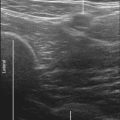
There’s a fresh energy pulsing through hospitals, clinics, and community health centers—a momentum tied to the advanced standing MSW program and the new wave of graduates stepping directly into multidisciplinary healthcare teams.
You might have noticed it in waiting rooms made warmer, care plans crafted to fit real lives, and patients who finally feel heard. Many assume social workers are there simply for the tough conversations. Let’s look closer and see how they’re reshaping what healthcare really means, day by day, team by team.
You’ll find MSW graduates not only in behavioral health—but woven deep into the daily operations of care. Right now, social workers are the third-largest professional group in U.S. healthcare, surpassed only by physicians and nurses. In fact, roughly 84% of Community Health Centers and Family Health Teams now count social workers among their staff. Recent workforce data shows that almost one-third of newly minted MSWs are starting their careers right in healthcare, with about 17.8% working in outpatient settings and 12.2% in inpatient facilities. That’s more than just a trend—it’s the new normal, underpinned by over 27,000 MSW graduates annually, with the vast majority going straight into professional practice.
MSWs Join the Ranks
Let’s pause on the numbers for a second. When you walk into a primary care clinic, there’s a good chance a social worker’s on the team. Recent surveys reveal that between 75–92% of multidisciplinary healthcare teams include at least one full- or part-time social worker, usually contributing substantial hours—roughly a quarter of a full-time role per primary care provider. It’s a marked change from even a decade ago, when the push for “whole-person care” was mostly a slogan.
This wave of advanced standing MSW program graduates arrives prepped, proven, and equipped with both the academic and practical grounding that healthcare systems need. Their training is built for speed, integrating the best of clinical social work with real-world medical knowledge, so teams don’t have to wait months for their impact.
From Bedside to Boardroom
We all recognize the value of emotional support during a rough patch. But MSWs today bring much more than expertise with grief or anxiety. They’re key to connecting the dots between medical treatment, home life, work, family, and the wider world that affects health outcomes. Think about advocacy for housing or food access, guidance during a confusing diagnosis, navigating insurance snags, or untangling complex social barriers—these are all within the MSW wheelhouse.
Teams with social workers see richer care planning and more seamless coordination. Decisions don’t just spring from charts—they’re grounded in the social, behavioral, and environmental realities that shape every patient’s journey. This expertise proves critical in areas like geriatrics, pediatrics, and managing chronic disease, especially where healthcare disparities loom largest.
Let’s make this concrete:
- Advanced standing MSW graduates are at the front lines of crisis intervention, hospital discharge planning, and chronic disease support—bridging the gap between medical and social needs without missing a step.
Shifting Gears—How MSW Graduates Enhance Complex Care
The MSW’s desk might be scattered with discharge summaries, housing forms, or emergency referral slips, but what ties it all together is their knack for real-time intervention. When families face sudden life changes, MSWs step up—guiding patients through every twist and turn, translating medical jargon, and ensuring no voice gets lost in the shuffle.
They’re often the bridge between overwhelmed families and medical teams, showing patients how to navigate systems that can feel unwelcoming or opaque. They mediate tough discussions, help clarify goals, and offer steady support when stakes are highest.
There’s also a deeper shift underway. Interprofessional education (IPE) now plays a prominent role in MSW training, thrusting social work graduates into collaborative learning with doctors, nurses, and allied health professionals. The result? New MSWs are better prepared than ever to slot into healthcare teams, unflustered by medical hierarchies and skilled at finding common ground.
Wearing Many Hats
Of course, working in multidisciplinary teams isn’t always straightforward. Social workers sometimes face role blurring—finding themselves clarifying boundaries or explaining their focus, both to colleagues and, at times, to patients. There’s practical complexity here: When teams get larger, lines blur. Yet, this is precisely where ongoing professional development becomes vital.
Graduates are increasingly advocating for their profession’s scope, leaning on an expanding evidence base that supports their contributions. Broadening curricula—infusing more health-specific knowledge and advocacy skills—strengthens their role and ensures they’re ready for whatever the next decade brings.
Plus, regular communication and active visibility within the team help boost respect and appreciation for their unique skillset. It’s through these practical adjustments that everyone benefits. Patients get more comprehensive care, and teams function more smoothly.
Where We Stand
Let’s ground things in the latest data one more time. MSWs are now established as essential players in most U.S. primary care teams. Hiring remains robust, reflecting both continued demand and a recognition that these roles add tangible, measurable value. The numbers alone don’t tell the full story, but they do confirm the profession’s security, growth, and daily relevance.
Looking ahead, we’re likely to see even more integration of advanced MSWs into all corners of healthcare—especially as the need for genuine, holistic, and coordinated care becomes ever more pronounced. But with progress comes responsibility. There’s still work to do: Better role clarity, more cross-disciplinary training, and a renewed focus on the evolving challenges facing diverse and aging populations.
MSW Graduates are Shaping Tomorrow’s Healthcare Teams
Step into a bustling hospital or a busy outpatient clinic today, and you’ll see how the advanced standing MSW program, and its graduates, are changing care for the better. It’s not about grand promises or sweeping declarations. Rather, it’s a steady, data-backed shift—an extra layer of empathy, practical problem-solving, and coordination that turns a good team into a great one.
We owe it to ourselves, our families, and our communities to recognize these changes as more than a trend or a response to immediate needs. This is a long game, shaped by real people, real data, and a persistent drive to make care more connected and responsive.
If you’re interested in delving deeper into the impact of integrated healthcare teams and social work’s evolving role, an authoritative resource is the World Health Organization’s detailed discussion on integrated people-centred health services.
With every MSW graduate welcomed into a team, the future of healthcare grows a little brighter—and a lot more human.







